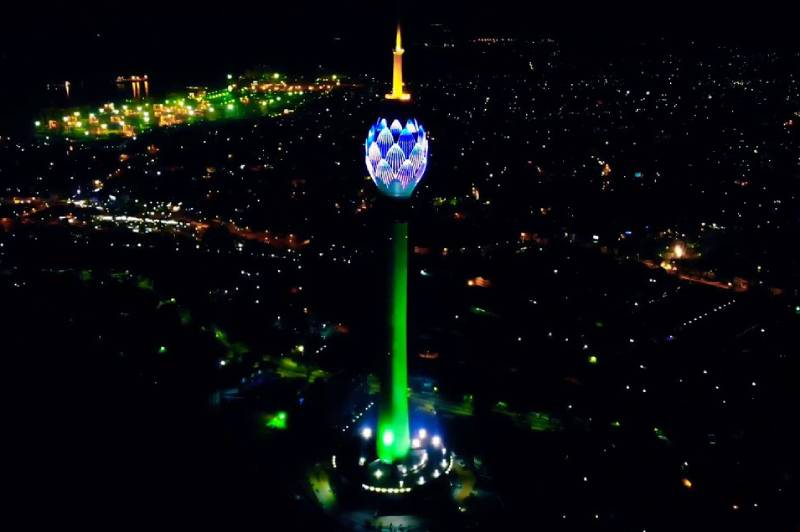The Auditor General’s Department, in a special audit report, highlighted that the continuous construction delay of Colombo Lotus Tower had resulted in a revenue loss of over Rs.5,475 million for the Government.
The AG’s assessment was based on a financial feasibility report prepared by the Moratuwa University Architecture Faculty Project Consultancy Unit which predicted the project’s income for 15 years. The Colombo Lotus Tower Project commenced on November 12, 2012 and was scheduled to be completed in 912 days (by May 2015).
The period of construction was extended up to October 2017 on the request of the contractor, but the project remained incomplete even as at the end of last year, the AG’s Department said in its latest report.
The Cabinet approval had not been obtained for the extension of the contract period.
The AG turned the spotlight on the constructions of a 350-meter high Multi-Functional Transmission Television and Telecommunication Tower in his special report issued in April this year.
In the report, the AG observed that recovery of liquidated damages from the contractor in respect of construction delays after May 19, 2018 was questionable as recovery of maximum amount of liquidated damages had been limited to 200 days according to the contract agreement.
The report also highlighted that a proper feasibility study report relating to the project had not been prepared and only a ‘financial feasibility study report’ had been prepared “with some weaknesses”.
The project contract was signed among Sri Lanka Telecommunication Regulatory Commission (SLTRC), China National Electronics Import and Export Corporation (CEIEC) and Aerospace Long - March International Trade Corporation Limited (ALIT) in 2012.
The project was funded by China Export - Import Bank of China (EXIM).
The report pointed out that the total agreed amount of loan (USD 88,655,000) could not be obtained due to the delay of constructions. The amount of loan disbursed had been limited to USD 67,259,754 by the EXIM Bank.
“However, commitment fee of Rs 91.8 million had been overpaid due to applying the total amount of loan of USD 88,655,000 for calculating commitment fees at the commencement,” the report observed.
The report stated that the borrowing cost of the loan agreement between the EXIM bank and the SLTRC had been understated by Rs.502 million and the insurance cost had been understated by Rs 681 million.
The present value of the budgeted income of the project had been overstated by Rs 2,038million.
“Due to understatement of borrowing cost and overstatement of present value the prediction of possibility of covering the cost within 15 years was questionable,” the report analyzed.
“A sum of Rs.141.5 million paid to the EXIM Bank as an additional fee by the SLTRC due to extension of contract period and limitation of loan was an uneconomical transaction” the report added.
The audit report also questioned the selection of CEIEC for the project, observing that Multi Functional Transmission Tower construction or any other large scale construction contracts had not been included in the business scope of the company as per the company’s business license.
The AG also revealed that two SLTRC officers had obtained allowances illegally from Moratuwa University for providing services to the Lotus Tower Project. The Director (Project) had obtained allowances totaling to Rs 3.3 million and a Development Officer had obtained allowances totaling to Rs 2.1 million in contrary to the professional ethics as per the Sri Lanka Accounting Standard.
The AG has recommended taking disciplinary actions against them. The report further recommended recovering Rs 10.9 million payments of allowances made to five officers in the project implementing committee as those were contrary to the provisions of the Management Services Circular. The audit report also highlighted a series of lapses in the awarding of contract for fixing electric lifts and escalators in the tower, observing that this lapse led to further delay of the project.
“The procurement for selecting a sub-contractor for electric lifts and escalators commenced in August 2013, but the contract was awarded only on March 31, 2016, after a lapse of 2 years and 8 months,” the report said.
(Daily News)

